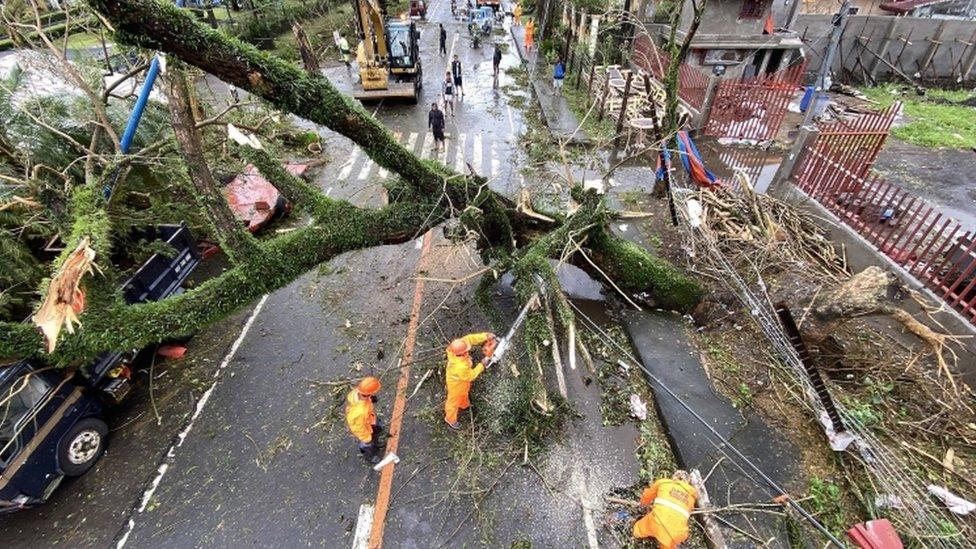Super typhoon Rai: Philippine tourist island Siargao among areas hit
- Published
Watch a month-old baby being floated to safety in a tub as heavy rain brought flooding to southern Philippines
A popular tourist island is among areas left devastated after a powerful typhoon ripped through the southern Philippines, officials say.
Super typhoon Rai made landfall on the holiday island of Siargao on Thursday, bringing winds of about 195km/h (120mph) and heavy rainfall.
The tropical storm has levelled homes on islands along its path, displacing hundreds of thousands of people.
The UN says some 13 million people may be affected.
So far 12 people are confirmed to have died, according to reports.
On Siargao trees were uprooted and power lines toppled as thousands were forced to take shelter amid widespread flooding.
The main airport terminal has been damaged but the runway is clear for relief operations, officials said.


Siargao's prominence grew in 2017, after a romantic comedy showcasing its outstanding tropical beauty hit cinemas here.
The island appeals to young, carefree travellers who want to escape the drudgery of urban life in the Philippines.
Surfers, digital nomads and international tourists all mingle in low-lit, beachside bars. Smoothie bowls and flat whites are readily available.
This year, Conde Nast Traveller readers gave Siargao the title of Best Island in Asia, a feat reflected by the area's surging property prices.
Many have taken to social media to express their concern about silence from loved ones living on the island. Social media is normally abuzz with updates from this tropical idyll, but for the last 24 hours it has been eerily silent.

As the storm barrelled westward, it hit the large islands of Leyte, Bohol, and Cebu, causing flash flooding after rivers burst their banks.
More homes had to be evacuated and videos posted on social media showed extensive wind damage to buildings in Cebu city - the second largest city in the Philippines.
In the province of Surigao del Norte, west of Siargao Island, Surigao city mayor Ernesto Matugas described Rai's impact as "severe".
"Everything sustained damage - roofs were blown off, access roads blocked by landslides," he told Philippine broadcaster ABS-CBN.
Typhoon Rai hits the Philippines
The Philippines is used to powerful storms - it is hit by an average of 20 storms and typhoons a year.
Super typhoon Goni left a trail of death and destruction in November 2020. It was the most powerful storm to hit the country since Typhoon Haiyan killed more than 6,000 people in 2013.
Related topics
- Published1 November 2020
